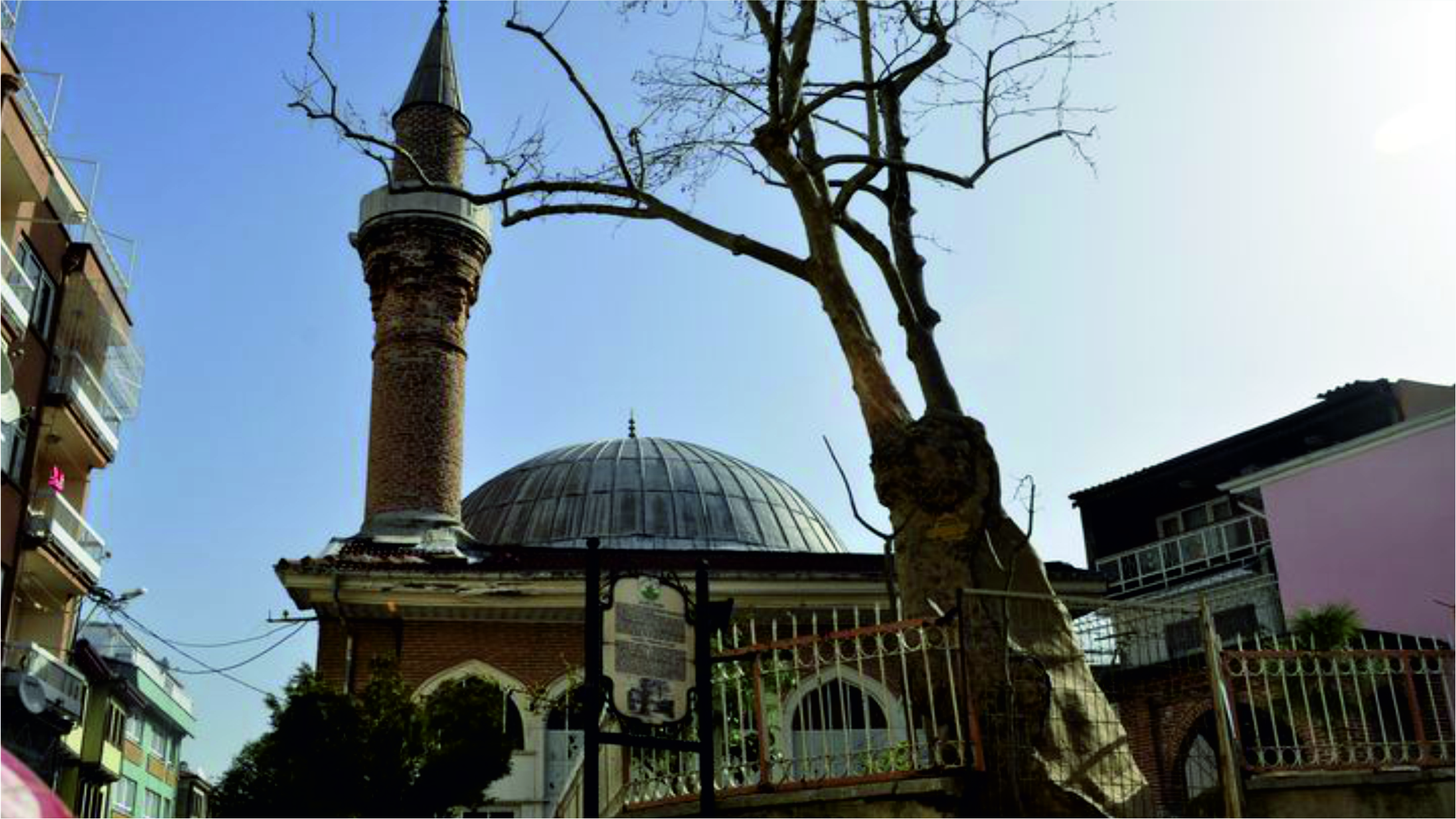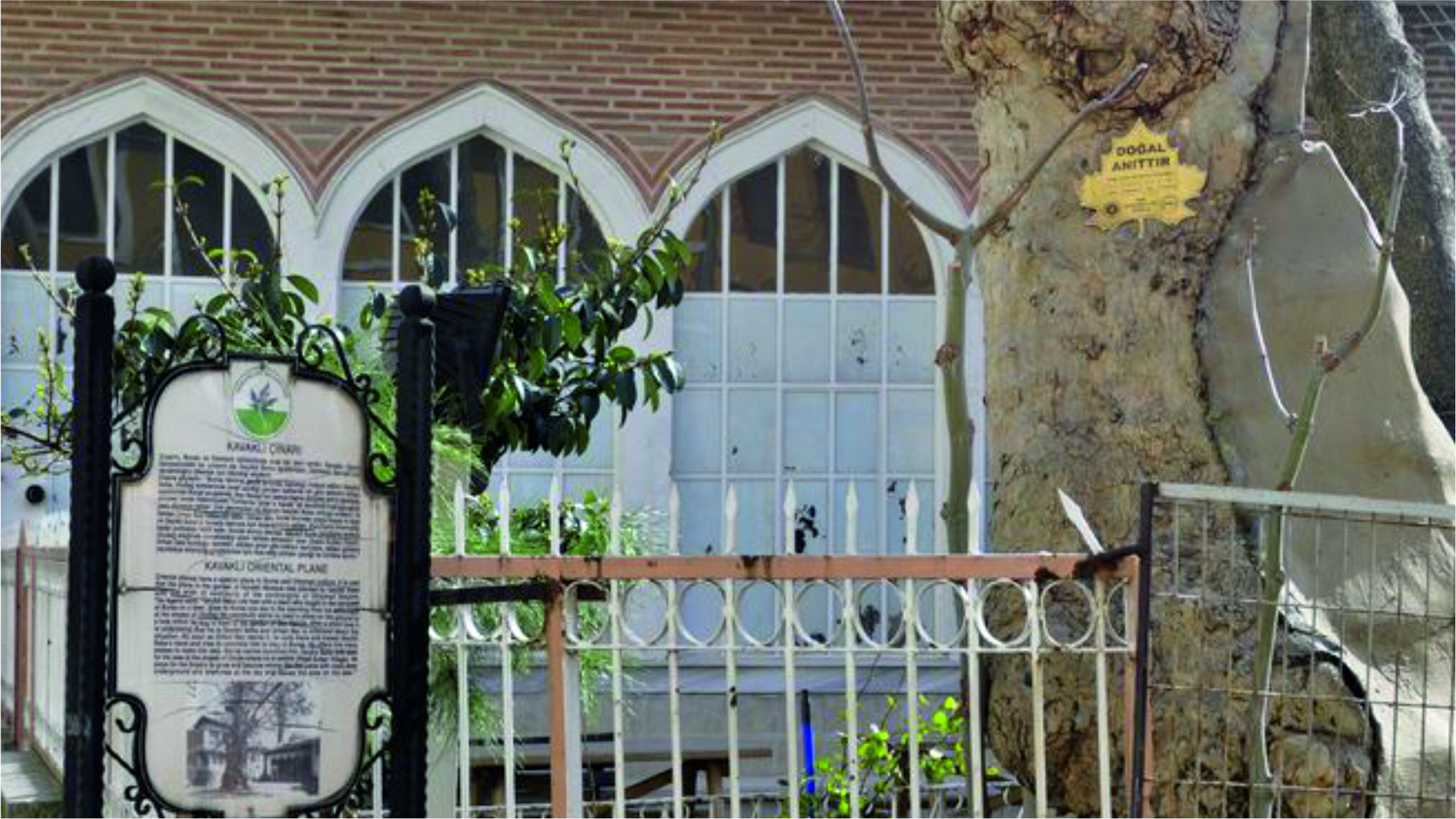
As you walk toward Kitap Evi from Kavaklı Street, you turn left at the mosque. But don`t go further—this time, look to your right. There, in the tiny courtyard of a mosque dated 1326, stands the once-majestic plane tree that gave its name to the entire neighborhood. Though reinforced with filler materials, it still stands. The Türkmen call plane trees “Kavak.”
This tree, planted by a dervish known as Geyikli Baba, came to Bursa during the early years of the Ottoman Empire from Khorasan. Legend has it that he would startle his enemies by appearing astride a deer, draped in a fur cloak, with a massive sword at his waist—or, according to some, carrying an enormous rock in his hands. After the conquest, he withdrew into solitude at the foothills of Uludağ, living among his deer in devotion to God. But his wisdom and warm spirit earned him the title of Baba—his home became a revered lodge.
Orhan Gazi, having heard of his virtues, sent a request for his blessing and a conversation. “It is not yet time,” came the reply. Understanding the importance of humility, the sultan decided to go himself—but again, he was turned away with the same words: “It is not yet time.”
The rulers of those days were different from today’s lords of power. They held respect for sages and agonized in silent patience, waiting for the moment of invitation. But in truth, even the wise men of that era did not rush to palaces or courts.

When the time finally came, Geyikli Baba carried a sapling from his lodge to the sultan, planting it with his own hands in the mansion’s garden. “May the state take root like this tree, and may its branches reach far,” he said. And that very tree—the one that stands before you now—is the same tree planted that day.
From Kavaklı Mahallesi, Bursa’s skyline unfolds from its fortress heights—a tiny dot in the vast world.
If you ever stop by, perhaps by the fire with a cup of coffee, we will share the full story.
Who knows?